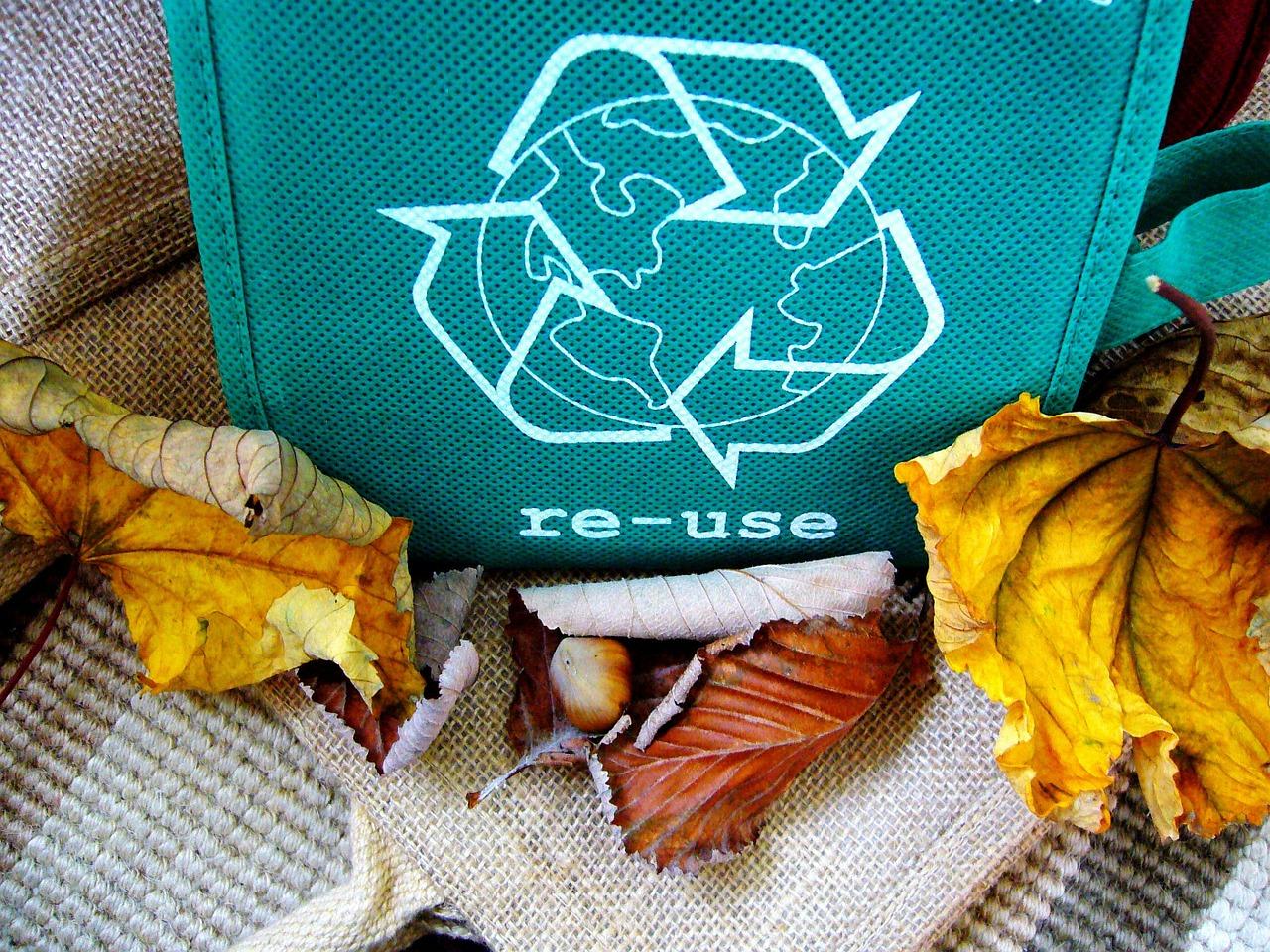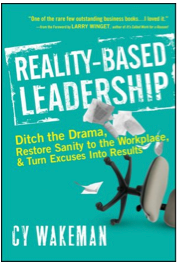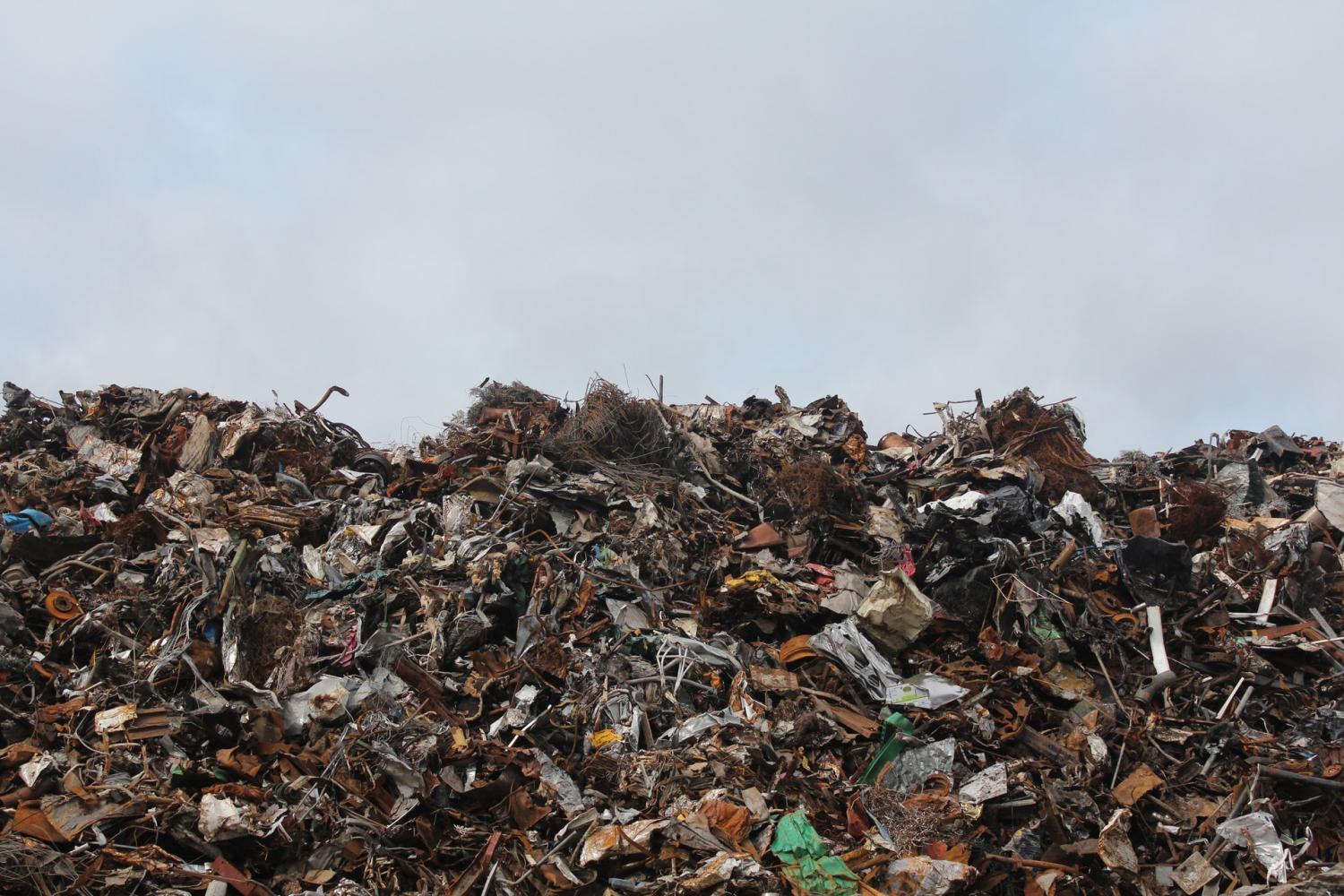Tar Sands Oil: Pros and Cons


You might not know this, but Canada has oil reserves of 170 billion barrels, more than Iran and Nigeria combined. This fact is not widely known since much of that oil has been considered “not economically recoverable,” lying deep underground in a mixture of bitumen, a thick, tarry substance, sand and water known as oil sands or tar sands. Development of these tar sands, located near the Athabasca River, by Suncor Energy, began in the 1960s but has been conducted at a relatively small scale because of the costs involved. Only recently, with declining supplies and increasing prices have attempts begun to try and ramp up production, especially after PetroChina acquired a 60 percent interest in two major wells in Alberta in 2009. This was followed in 2010 by Sinopec paying $4.65 billion for a 9 percent stake in Syncrude Canada Ltd.
Chinese investors find this resource to be attractive, since Canada is considered to be a low political risk when compared with, say, the Middle East. As of 2010, the three biggest of many players were Syncrude Canada, Suncor, and Albian Sands, a joint venture of Chevron, Shell Canada and Marathon Oil. BP also has a substantial stake, with a 75 percent interest in Terre de Grace, which it also operates.
Projections made after slowdowns in offshore production show that as much as 36 percent of American oil could be coming from Canadian oil sands by 2030. According to oil expert Daniel Yergin, “Canadian oil sands…have gone from being a fringe energy source to being one of strategic importance.’’
Sounds good so far, but not so fast; there are numerous major environmental problems and risks associated with this technology.
For starters, extracting this oil requires a good deal more energy than conventional drilling, which means more greenhouse gases before the oil even reaches the pump. The net energy return on energy invested ratio of tar sands oil by the time it is converted to gasoline is roughly half that of the equivalent process for conventional crude oil. It is the largest source of carbon emissions in Canada, making Alberta, with only 10 percent of the population, the highest emitting province.
The Canadian government has invested heavily in the use of Carbon Capture and Storage (CCS) for the tar sands recovery process, but this technology is yet unproven. The process requires also vast amounts of water and chemicals to wash the sands. Anywhere from 2 to 4.5 times the amount of water is required for each barrel of oil produced. The discharge that accumulates in highly toxic waste ponds pose a huge threat to wildlife. In one incident, a flock of 1,600 ducks mistakenly landed in one of these ponds and they all died. Now, propane cannons, using even more energy, are used to frighten away wildlife. Tailing pools now cover 50 square miles adjoining the Athabasca River, in the middle of the world’s largest intact forest, a key absorber of CO2 and wildlife habitat. The projects have also been a mixed blessing for the numerous First Nations people living in the area. While it has brought a significant number of jobs and economic activity, the developers not only pollute the area, but they don’t take First Nations’ interests into account, destroying hunting and fishing, habitat and bringing a number of health risks to the region.
Recently, a number of environmental groups and 23 First Nations groups have asked for a moratorium on new tar sands development. They are also asking to halt the Keystone XL pipeline which would strongly encourage further development of the Tar Sands, by allowing the oil to be shipped from Texas to China, where most of it will be used.
Pros
- Very large supply. Second largest oil field in the world.
- Economically recoverable at today’s oil prices
- Will help keep oil prices relatively low
- Enormous growth potential. Less than 5 percent has been produced.
- Big economic driver in Alberta. Jobs for Native Americans.
- Stable source country (a rarity for oil)
- GHG emissions could potentially be minimized through CCS
Cons
- Enormous GHG emissions. Oil sands are already Canada’s largest source of CO2 emissions.
- Relatively low net energy return compared to other sources
- Alberta, with only 10 percent of the population, emits the most GHG emissions of any province. Provincial government has been slow to respond.
- Large amounts of water required: roughly 3:1
- Water pollution. Roughly 3 million gallons of toxic runoff per day. Fifty square miles now covered in toxic pools
- Destructive to major boreal forest, an important carbon sink
- Widespread habitat destruction, both on land and water
- Destructive to ancestral lands
- Requires expensive and risky pipeline to reach faraway markets
In summary, tar sands oil has a cost/benefit profile that is similar in many ways to coal, except that coal is used for electricity while oil is used for transportation. At the present, there are probably more alternatives for electricity than there are for transportation. This could begin to shift if we see tractor-trailers trucks being converted to natural gas, as T. Boone Pickens predicts. Of course, the current historically low natural gas prices, combined with high oil prices has, at least for the moment, rearranged the whole energy picture.
The similarities between tar sands oil and coal are the large supply on the one hand and the massive environmental problems on the other. I would have to say that, as bad as the environmental impacts of coal are, these tar sands might even be worse, despite what the developers might say. There is no question that the approval of the Keystone XL pipeline will encourage expansion of this resource, while bringing questionable benefits to the US, since most of the oil will be shipped to China. Mostly though, I think the whole conversation is really about price and Americans’ desire to live in a world where gas is cheap and no one bothers them to worry about global warming. That world may have existed in the 1950s and 60s, but it certainly doesn’t exist anymore.
***
What about other energy sources?
- Pros and Cons of Wind Power
- Pros and Cons of Fusion Power
- Pros and Cons of Tar sands oil
- Pros and Cons of Solar Heating and Cooling
- Pros and Cons of Concentrating Solar Power
- Pros and Cons of Solar photovoltaics
- Pros and Cons of Natural Gas
- Pros and Cons of Fuel Cell Energy
- Pros and Cons of Biomass Energy
- Pros and Cons of Combined Heat and Power
- Pros and Cons of Clean Coal
- Pros and Cons of Algae Based Biofuel
- Pros and Cons of Liquid Flouride Thorium Power
- Pros and Cons of Tidal Power
- Pros and Cons of Nuclear Energy
[Image credit: 4Blue Eyes Pete Williamson: Flickr Creative Commons]
RP Siegel, PE, is the President of Rain Mountain LLC. He is also the co-author of the eco-thriller Vapor Trails, the first in a series covering the human side of various sustainability issues including energy, food, and water. Now available on Kindle.
Follow RP Siegel on Twitter.
The Problem with the TOMS Shoes Charity Model


Remember the old proverb about how it's better to teach a man to fish then catch a fish for him to eat? I am reminded of that saying when I think about TOMS Shoes buy-one pair, give-one pair model. A Fast Company article points out that the model “does not actually solve a social problem.” Instead, it functions more like colonialism, diving in to local economies to solve problems rather than listening and figuring out how best to help.
There are several big problems with TOMS' model: by giving away shoes, it creates a dependency, and it disrupts local economies. Values and Capitalism points out that the TOMS model “needs improvement” because “giving away free stuff… almost always has a negative long-term impact on local economies.”
While it may be harsh to call the TOMS model another form of colonialism, it is fair to say that it is essentially based on paternalism. While doing research for this article, I stumbled across an insightful blog titled, A Personal Diaspora. The author of the blog, in a post about TOMS, warns that paternalism “creates dependency, removing the responsibility to provide from the poor themselves to some unknown (to them) outside source.” In other words, paternalism gives a fish and never teaches how to fish.
Fast Company suggests three things TOMS can do to improve its model:
- Better understand the problem of poverty in developing countries. The problem of poverty is deeper than just children lacking shoes. It is important to know the systemic reasons for poverty in a given society.
- Create a solution, not a band-aid. Developing countries do not need paternalism.
- Innovate business models, not marketing campaigns. The TOMS model is a great marketing campaign in that it appeals to a person’s sense of compassion.
Are there alternatives to the TOMS model?
There are two companies that operate from the “teach a man to fish” paradigm: Oliberté Footwear and SoleRebels. Both are based in Africa. Canadian Tal Dehtiar started Oliberté in 2009. The name itself comes from the French word for freedom and the “O” in the Canadian’s national anthem. Oliberté makes shoes in Africa using local materials and sells them in Western countries. The company went from 200 pairs sold in the beginning, to 10,000 in 2011.
Oliberté’s shoes are made in Ethiopia with leather “sourced from local free-range cows, sheep and goats,” according to an article by Good. The natural rubber in the soles of the shoes is processed in Liberia. Last year, the company expanded its line to include leather bags and accessories that are made in Zambia, with some of the leather coming from Kenya. The woven labels on the products are produced in Mauritius.
Oliberté’s website states that the company “partners with factories, suppliers, farmers and workers to produce premium footwear in Africa” and creates “fair jobs, with the goal of contributing to the development of a thriving middle class.” The company calls itself the first to “make premium leather shoes and goods exclusively in Africa.”
SoleRebels is a shoe company founded by Bethlehem Tilahun, an Ethiopian. It employs about 100 workers, and pays four times the legal minimum wage and three times the industry average wage for similar work in Ethiopia, plus covers workers’ healthcare costs.
Tilahun said something about TOMS that sums it up: “If you give a kid shoes, they wear out or they grow out of them, and then what do they have? If you give the kid’s parents a job, the whole family will always have shoes.”
Photo credits: Ariel Waldman/Flickr
Algae-based Biofuel: Pros And Cons


Algae–based biofuel is a new energy source that has been getting a lot of attention lately. Certain types of algae contain natural oils that can be readily distilled into a vegetable oil or a number of petroleum-like products that could serve as drop-in replacements for gasoline, diesel, and jet fuel.
But because it’s a bio-fuel, it is essentially carbon-neutral because the carbon emitted when it is burned had just recently been absorbed as food, which means that the net CO2 emission is essentially the same as if the algae had never been grown. That does not include CO2 utilized in production. Industry claims assert that algae-based bio-diesel has a GHG footprint that is 93 percent less than conventional diesel. Some algae production is sited near sources of CO2 such as power plants, in a kind of symbiotic relationship. Algae-based fuel yields considerably more energy per unit area than other bio-fuels. It can also be grown on land otherwise unsuitable for agriculture. The technology is quickly moving out of the lab and into commercial scale production. A number of companies developing refineries include Solazyme, Sapphire Energy (which just last week announced another $144 million in funding) and OPXBIO. Aviation trials with several airlines including United and Qantas have been successfully completed using fuel blends of up to 40 percent algae-derived fuel.
Algae was initially raised in large shallow ponds which produced about 5,000 gallons per acre-year and required a fair amount of water to compensate for evaporation. More recently, companies have migrated to vertical photo bio-reactors (PBRs) that are gravity fed, with no evaporation, and in which 85 percent of the water is recycled along with excess nutrients and CO2.
Here is a list of pros and cons for algae-based biofuels.
Pros
- Bio-based fuel with essentially carbon neutral combustion
- Drop in replacement for petroleum-based liquid fuels
- Inherently renewable
- Absorbs carbon dioxide as it grows
- Both waste CO2 and wastewater can be used as nutrients
- Higher energy per-acre than other bio-fuels
- Can be grown on land unsuitable for other types of agriculture
- Scalable: Study found that 17 percent of U.S. oil imports could be met with algae
- Investments are being made
- Production is presently scaling up (Navy buying 100,000 gallons this year)
- Research has been underway for 50 years
Cons
- Need to be grown under controlled temperature conditions
- Requires a considerable amount of land and water
- Cold flow issues with algal biofuel
- Some researchers using genetic engineering to develop optimal algae strains
- Requires phosphorus as a fertilizer which is becoming scarce
- Fertilizer production is carbon dependent
- Relatively high upfront capital costs
- Not clear yet what the ultimate cost per gallon will be. Presently too high.
In summary, algae-based bio-fuel is a promising energy source that is in the latter stages of development. A number of issues related to the ultimate cost of the product need to be resolved, but there is a good deal of research money going into this as production is beginning to scale up. Land issues can be addressed using marginal land. Water can be recycled in reactors. Cold flow issues might result in the fuels being blended with other fuels or possibly additives. Fertilizer issues could be addressed using waste streams, thereby recycling the critical nutrients. Time will tell, though I believe this is an important technology to watch.
***
[Image credit: Oliver Dodd: Flickr Creative Commons]
RP Siegel, PE, is the President of Rain Mountain LLC. He is also the co-author of the eco-thriller Vapor Trails, the first in a series covering the human side of various sustainability issues including energy, food, and water. Now available on Kindle.
Follow RP Siegel on Twitter.
Clean Coal: Pros and Cons


Let’s face it, coal is nasty stuff. It contaminates everything it comes in contact with and creates problems at every step of its life cycle: from unhealthy and unsafe underground mines, to the environmental catastrophe of mountaintop removal, to the problems associated with handling the enormous piles of ash that are produced every day. But by far, the biggest problem is the enormous amount of carbon dioxide emitted. According to the EPA, coal contributes 31 percent of all CO2, the largest of any source.
The people who still support coal basically have one argument: that it’s a necessary evil, being the only source of energy within reach that is sufficiently abundant to keep up with our enormous and ever-growing appetite for energy. We have so much coal, they reason, and we need so much energy, how could we not take advantage of this resource? They could be right, as much as those of us who care about the environment hate to admit it. As much as we would like to believe that conservation, efficiency and renewables will meet our growing, but maybe-not-growing-quite-so-quickly demand, there is certainly no guarantee that they will. Considering that coal accounts for 40 percent of all electric generation (down from 45 percent) and 21 percent of all energy in the US, that’s a lot of energy to replace. Of course, with falling natural gas prices, that is clearly picking up a lot of the slack.
Meanwhile, renewables accounted for just over 10 percent of electric power in 2010, and most of that was from existing hydropower.
If that’s not bad enough, coal powers 70 percent of China’s electric grid, which is growing far faster than ours and shows no sign of slowing down. In fact, the only thing keeping them from increasing coal generation even faster is their limited ability to physically move the stuff. Together, the US and China are responsible for 33 percent of global greenhouse gas emissions.
The other thing about coal is, of course, that it’s cheap, usually cheaper by far than other energy sources, largely because so many of its true costs are still being externalized. It is worth noting that wind at 5-6 cents per kWh is closing the gap.
Given the reality of climate change, any talk of coal must be clean coal, an approach which enables the utilization of our most abundant domestic energy resource so that at least the impact on the climate is minimized. (To put this in perspective, note that the total amount of energy we received from coal in 2010 is equal to the amount of sunshine over the same period, hitting just 460 square miles. If we adjust for the low efficiency of solar PV (17 percent at the low end), then that number goes up to 2706 square miles, well below 0.1 percent of the land area of the US, though we are nowhere close to capturing all of that any time soon.)
Clean coal has a number of variations, but all of them involve stripping the CO2 out of the coal, either before or after it is burned and then capturing it. It is then either utilized for industrial purposes or for enhanced oil recovery, or else it is pressurized into a liquid form where it can be injected underground where it supposedly will stay indefinitely in a process called carbon sequestration. The overall process is called carbon capture and storage (CCS).
No sequestration project existing or proposed removes all the CO2 from the exhaust, because of the high energy penalty for doing so (30 percent or more). Most of them bring the CO2 level down to that of natural gas. Canada has already banned the development of any new coal generation project that does not include CCS.
No doubt the least destructive form of clean coal is underground coal gasification (UCG). This is where the coal is left in the ground and converted to gas by chemical means and then sucked up to the surface where it is burned. Most of these projects include capturing the CO2 and then sequestering it as described above. Pilot plants have been run in China, and the Swan Hills plant is supposed to come online this year in Alberta, Canada. In the US, the Texas Clean Energy Project, outside Odessa, which received $450 million in DOE funding, will apply UCG, capturing 90 percent of the CO2 and then using that CO2 for enhanced oil recovery in nearby Permian Oil Basin. This approach eliminates most problems associated with coal mining, transportation and burning, leaving only the problems associated with sequestration and gas extraction to be grappled with.
With that background, here are the pros and cons of clean coal.
Pros
- Abundant supply, concentrated in industrialized countries (US, Russia, China, India).
- Relatively inexpensive.
- Continuous power. Good utilization. High load factor.
- Substantial existing infrastructure. Mature industry.
- Can be made low carbon and clean with CCS and various scrubbers.
- Can be converted to a liquid or a gas, which burn cleaner.
- Clean coal technology is currently being used in China.
- Relatively low capital investment (compared to gas or nuclear).
- Coal is nonrenewable. There is a finite supply.
- Coal contains the most CO2 per BTU, the largest contributor to global warming.
- Severe environmental, social and health and safety impacts of coal mining.
- Devastation of environment around coal mines.
- High cost of transporting coal to centralized power plants.
- Coal ash is a hazard and a disposal problem.
- Coal mining is the second highest emitter of methane, a potent greenhouse gas.
- High levels of radiation. Coal plants release more radiation than nuclear plants.
- Coal burning releases SOx and NOx which both cause acid rain.
- Burning coal emits mercury and other heavy metals that pose major health risks.
- Coal emissions linked to increased rates of asthma and lung cancer.
- Sequestration is new, expensive and its ability to hold CO2 for long periods of time is unproven. Risk of accidental releases of large quantities of CO2.
- Clean coal is not carbon free.
- Significant energy penalties are incurred for sequestration.
- CO2 is toxic at concentrations above 5 percent. The condition is called hypercapnia.
The true costs of coal are not included in what is paid today. Coal would not be competitive if environmental costs were included. When the costs of mitigating these impacts through CCS and UCG are factored in, it will not be competitive against renewables. However we might still need to use it in some localities to meet our ever-growing demand. But with natural gas coming in just as cheap, and with the same level of GHG as Clean Coal, it's not at all clear that these investments are justified. But there's no reason I can think of that the same capture and storage technologies that were developed for coal, couldn't be used in natural gas plants to bring them down to zero carbon.
***
What about other energy sources?
- Pros and Cons of Wind Power
- Pros and Cons of Fusion Power
- Pros and Cons of Tar sands oil
- Pros and Cons of Solar Heating and Cooling
- Pros and Cons of Concentrating Solar Power
- Pros and Cons of Solar photovoltaics
- Pros and Cons of Natural Gas
- Pros and Cons of Fuel Cell Energy
- Pros and Cons of Biomass Energy
- Pros and Cons of Combined Heat and Power
- Pros and Cons of Clean Coal
- Pros and Cons of Algae Based Biofuel
- Pros and Cons of Liquid Flouride Thorium Power
- Pros and Cons of Tidal Power
- Pros and Cons of Nuclear Energy
[Image credit: Marc Wathieu: Flickr Creative Commons]
RP Siegel, PE, is the President of Rain Mountain LLC. He is also the co-author of the eco-thriller Vapor Trails, the first in a series covering the human side of various sustainability issues of energy (including clean coal), food, and water. Now available on Kindle.
Follow RP Siegel on Twitter.
Solar Photovoltaics: Pros and Cons


Solar PV is perhaps what most people think of first when they think of renewables (though we actually use more biomass). Solar PV can be used anywhere the sun shines as long as there is space available. Enough sunlight falls on the Earth in one hour, to meet the world’s energy demand for a year, if it could be collected. It is eminently scalable with installations ranging from a few kilowatts to the 48 megawatt Copper Mountain solar farm in Nevada. Utility scale solar capacity is quite small compared to the big boys, like the 8200 MW Kashiwazaki-Kariwa nuclear plant in Japan or the 5780 MW Taichung coal plant in China.
Solar presently contributes a very small share of our energy pie, around 1 percent, but it continues to grow at double-digit rates and is projected to triple from 2010-15 after growing almost ten-fold from 2003-2010.
It is also the subject of a great deal of research, so we should expect a number of breakthroughs coming down the pike, including things like nano-pillars to lower cost, concentrators to reduce the area required, and more efficient and powerful cells, to reduce both. Most solar PV systems today are either made from traditional silicon-based solar cells, or the newer thin-film technology.
Solar PV systems produce DC current, which can be used with DC appliances or converted to AC by means of an inverter. More and more of today’s electronics run on DC, which requires those little power supplies that plug into the wall which convert the AC to DC. This could be an opportunity in the future to power these devices directly from solar PV, eliminating the efficiency losses that occur when converting from DC to AC and then back again.
Let’s take a look at the solar PV pros and cons.
Pros
- Clean energy. No combustion. No greenhouse gas emission from use.
- Inexhaustible and abundant “fuel” supply
- Available nearly everywhere
- Well suited for distribution generation
- Technology exists today and is rapidly improving
- Generates electricity directly from sunlight
- No moving parts required
- Power generation is silent. No noise or pollution.
- Little or no transmission required
- Matches up well with air-conditioning need
- Require minimal maintenance
- Grants and incentives are sometimes available
- Excess heat can be used for co-generation
- Intermittent source. Not available at night or under clouds.
- Relatively high cost, especially with storage
- Requires inverter to produce AC current
- Requires storage or grid connection for continuous round-the-clock use
- Less available for heating demand (time of day and season)
- Exotic materials required in many thin-film systems
- Requires a relatively large amount of open space
- Relatively low efficiency (around 17-40 percent)
- Relatively low energy intensity ( ~8-12 m2/ kW)
- Fragile materials
- Possible aesthetic issues
- Technology risk: a much better system might come out next year
Besides the relatively clear cut pros and cons of solar PV, there are also the transformative socio-economic impacts of moving from centralized to distributed power generation. There is clearly a technical advantage, since efficiency losses associated with long range transmission are eliminated, as are, possibly hundreds of miles of power lines that now crisscross the landscape. Lost would be certain economies of scale and centralized control. Distributed power generation is more resilient against large-scale blackouts as well as acts of terror, though it could mean a change in business models for today’s utilities. This is a trend that has been predicted by Jeremy Rifkin in his Third Industrial Revolution. After all, who wouldn’t want a house that produces its own power, rather than a house that is just a house?
***
To summarize:
- Disadvantages of Solar Energy
- Advantages of Solar Energy
- Find out what it takes to put solar on your home.
***
What about other energy sources?
- Pros and Cons of Wind Power
- Pros and Cons of Fusion Power
- Pros and Cons of Tar sands oil
- Pros and Cons of Solar Heating and Cooling
- Pros and Cons of Concentrating Solar Power
- Pros and Cons of Solar photovoltaics
- Pros and Cons of Natural Gas
- Pros and Cons of Fuel Cell Energy
- Pros and Cons of Biomass Energy
- Pros and Cons of Combined Heat and Power
- Pros and Cons of Clean Coal
- Pros and Cons of Algae Based Biofuel
- Pros and Cons of Liquid Flouride Thorium Power
- Pros and Cons of Tidal Power
- Pros and Cons of Nuclear Energy
- Solar Panels for Your Home
[Image credit: eastpole: Flickr Creative Commons]
RP Siegel, PE, is the President of Rain Mountain LLC. He is also the co-author of the eco-thriller Vapor Trails, the first in a series covering the human side of various sustainability issues including energy, food, and water. Now available on Kindle.
Follow RP Siegel on Twitter.
Cash for Trash: Innovative Companies Profitably Upcycle, Recycle and Reduce Waste


By Vreni Hommes
Turning worm poop into fertilizer was TerraCycle’s first big idea. Then they transformed discarded drink containers into consumer bling, which made them a world-recognized leader in this hot, new trend of “upcycling.” Upcycling is the conversion of waste destined for landfills into new products of better quality or a higher environmental value. TerraCycle upcycles unwanted trash into messenger bags, notebooks, and the list goes on.
“Buy low, sell high” is the underlying business model for upcycling companies such as TerraCycle. They buy raw source materials (waste) at low cost and charge premium prices for their fashionable, environmentally-friendly upcycled products. But that’s not all. The upcycling companies’ business partners also benefit because their scrap waste is being reused. Instead of having to pay someone to haul their waste away, someone is actually paying for it and taking it off their hands.
The good news for the environment is that as more trash is upcycled, less trash is ending up in landfills. It also lowers the consumption of raw materials, air pollution from waste incineration, and water pollution from leaking into landfills.
The upcycling trend is doing something more . . . it is raising people’s awareness about the growing trash problem and motivating them to change their behavior. For example, Recyclebank does this by educating and rewarding their customers for recycling. Terracycle does this by setting up collection centers to make it easier for communities and schools to recycle.
Upcycling is a growing industry
TerraCycle and Recyclebank aren’t the only companies coming up with innovative - and profitable - ideas for making stylish, environmentally-friendly products out of trash. Learn more about them and other cutting-edge upcycling companies below.
- TerraCycle, Inc. is a worldwide leader in the collection and reuse of consumer packaging and products.
- Recyclebank rewards people for taking everyday green actions with discounts and deals from local and national businesses.
- Playback Clothing transforms trash like plastic bottles and clothing scraps into great looking eco-clothing.
- Hipcycle offers upcycled products that are as desirable, attractive and durable as traditional equivalent products.
- IceStone makes high design surfaces from recycled glass instead of quarried stone.
- Preserve makes attractive toothbrushes and kitchenware from recycled plastic like yogurt containers.
Criticism of upcycling
Critics argue that upcycling and recycling only postpones the inevitable – the waste will still eventually end up in landfills. It is better to reduce waste to begin with to than upcycle waste after it is generated. “Zero Waste” advocates want products that are designed to be repaired, refurbished, re-manufactured and reused. They want people to change their behavior and businesses to change their practices so that less waste is created and any discarded material is used as a resource for others.
What about "Zero Waste?"
Although it remains challenging to get consumers reduce their waste and recycle, many businesses are already discovering there is money to be made with zero waste programs. According to GreenBiz, by finding ways to reduce its waste, Wal-Mart has cut the cost to haul waste to landfills in California by over 80 percent. General Motors has earned $2.5 billion from recycling over the past four years. Kraft has achieved zero waste at 36 food plants around the world and, at some locations, use manufacturing byproducts to create energy. Companies in almost any industry and of every size are seeing significant savings by reducing, reusing, or recycling materials. Besides being environmentally friendly, zero waste initiatives save money by cutting out waste and streamlining production.
Is one waste strategy better than another?
It seems that almost any waste strategy – upcycling, recycling, reusing, or reducing materials – can lead to significant savings and even boost revenues. This is clearly good for business. When it comes to the environment, however, there is a bit of a debate about which waste strategy is best. As mentioned earlier, zero waste advocates argue that any upcycled or recycled waste still eventually ends up in landfills. Thus, it is better to not create the waste to begin with.
Yet even if upcycled products do eventually end up in landfills, upcycling companies like Terracycle and Recyclebank are succeeding in raising people’s awareness of the waste problem and motivating them to change their behavior and recycle more. Plus, the new upcycling market is incenting companies to develop new environmentally-friendly products and services. While upcycling isn’t as green as zero waste, it is changing how we view and what we do with trash.
What do you think?
- Is zero waste the only environmentally responsible waste strategy?
Or is upcycling a good development for the environment too?
- Is the solution to the waste problem going to come from corporate America and zero waste programs?
Or does a lasting solution require consumers to change their behavior with regard to trash?
Image credit: Pixabay
Natural Gas: Pros and Cons


Natural gas has been in the news a lot lately, being hailed as the solution to our energy problems on the one hand, and a potential environmental nightmare on the other. Let's try to sort out the reality behind this old friend with a new face. Before we start, it might be useful to make a distinction between the natural gas that has historically been collected as a byproduct of oil drilling and the more recently promoted source known as shale gas. This has become newsworthy as the result of an enormous deposit of shale gas discovered in the Marcellus field extending across large sections of Pennsylvania, Maryland, and New York. Shale gas requires a much more aggressive method of collection since it is buried deep in the earth under many layers of shale. The most popular method of collecting shale gas is hydraulic fracturing, or fracking, a relatively new technology, developed by Halliburton, which has become quite controversial. The move into fracking parallels a gradual takeover of the natural gas industry by the big oil companies.
PROS
- Widely used, contributes 21% of the world’s energy production today
- Delivery infrastructure already exists
- End use appliances already widespread
- Used extensively for power generation as well as heat
- Cleanest of all the fossil fuels
- Burns quite efficiently
- Emits 45% less CO2 than coal
- Emits 30% less CO2 than oil
- Abundant supply in the US. DOE estimates 1.8 trillion barrels
- Low levels of criteria pollutants, (e.g. SOx, NOx) or soot when burned
- Can be used as an automotive fuel
- Burns cleaner than gasoline or diesel
- No waste (e.g. ash ) or residue to deal with
- Lighter than air, safer than propane which is heavier than air
- Can be used to makes plastics, chemicals, fertilizers and hydrogen
- Natural gas industry employs 1.2 million people
CONS
- Non-renewable fuel, supply cannot be replaced for millennia
- Emits carbon dioxide when burned
- Contains 80-95% methane, a potent greenhouse gas (GHG)
- Explosive, potentially dangerous
- Concentrated sources require long distance transmission and transportation
- Energy penalties at every stage of production and distribution
- Requires extensive pipelines to transport over land
- Stored and distributed under high pressure
- Requires turbine-generators to produce electricity
- Liquefied form (LNG) used to transport over water, in tanker ships is potentially very dangerous
- Energy use competes with use for chemicals and fertilizers
- Additionally, there are significant environmental risks associated with “fracking”
- Water pollution due to runoff of fracking chemicals
- Companies are not required to disclose the composition of fracking chemicals (another example of lobbying in action).
- Water can also bring up adsorbed underground toxins including arsenic
- GHG footprint of shale gas greater than coal over 100 year time frame
- Fracking has been linked to earthquakes
- Casing leaks lead to gas in the water—blazing faucets
- Fracking requires a large amount of water
The relatively even number of pros and cons shows that this is not an easy choice. Given how widespread and available and “less bad” natural gas is from other fossil fuels, plus the number of jobs created, it is hard to ignore the argument that natural gas should serve as a bridge fuel as more sustainable alternatives are built out. We should keep in mind though, that it is a short term measure and invest accordingly. As far as fracking is concerned, considering that there is already lots of gas available right now, there is no reason (other than greed) to be in a hurry to develop shale gas. Instead, we should take whatever time is necessary to develop a safer, more responsible way to access that gas, while investing heavily in more sustainable sources that will ultimately obviate the need for it.
***
What about other energy sources?
- Pros and Cons of Tar sands oil
- Pros and Cons of Solar Heating and Cooling
- Pros and Cons of Concentrating Solar Power
- Pros and Cons of Solar photovoltaics
- Pros and Cons of Natural Gas
- Pros and Cons of Fuel Cell Energy
- Pros and Cons of Biomass Energy
- Pros and Cons of Combined Heat and Power
- Pros and Cons of Clean Coal
- Pros and Cons of Algae Based Biofuel
- Pros and Cons of Liquid Flouride Thorium Power
- Pros and Cons of Tidal Power
- Pros and Cons of Nuclear Energy
[Image credit: Suncor energy: Flickr Creative Commons]
RP Siegel, PE, is the President of Rain Mountain LLC. He is also the co-author of the eco-thriller Vapor Trails, the first in a series covering the human side of various sustainability issues including energy, food, and water. Now available on Kindle.
Follow RP Siegel on Twitter.
A Business Book For Sustainability Leaders


Submitted by Elaine Cohen
Reality-Based Leadership: Ditch the Drama, Restore Sanity to the Workplace & Turn Excuses Into Results
Author: Cy Wakeman
ISBN: 978-0-470-61350-4
Publisher: Jossey Bass
By Elaine Cohen
Recent polls show that 71 percent of workers think about quitting their jobs every day. That number would be shocking -- if people actually were quitting. Worse, they go to work, punching time clocks and collecting paychecks, while completely checked out emotionally.
In Reality-Based Leadership, Cy Wakeman reveals how to be the kind of leader who changes the way people think about and perceive their circumstances-one who deals with the facts, clarifying roles, giving clear and direct feedback, and insisting that everyone do the same, without drama or defensiveness.
Filled with dynamic examples, innovative tools, and diagnostic tests, this book shows you how to become a Reality-Based Leader, revealing how to:
- Uncover destructive thought patterns with yourself and others.
- Diffuse drama and lead the person in front of you.
- Stop managing and start leading, empowering others to focus on facts and think for themselves.
Leadership Accountability
Leadership accountability is one of the most underplayed themes in sustainability today.
This shows up when heads of companies receive massive bonuses that are not directly tied to corporate performance.
It shows up in the way employee performance is evaluated – using inputs (what people do) rather than outcomes (what results they deliver).
It shows up in the fact that 31 percent of employees are actively engaged in their jobs (and 17 percent are actively disengaged).
It shows up in the fact that "71 percent of workers think about quitting their jobs every day."
It shows up in the fact that far too many underperforming people remain far too long in organizations in which they are not positively contributing (and in some cases, they are actually causing damage).
Sustainable Reality-Based Leadership
Wakeman’s book was, perhaps, not written for the sustainability bookshelves. It was written for the Business Leadership, Management and Human Resources sections of business literature. However, its relevance for sustainability is compelling.
Business sustainability requires leaders who deliver sustainable results through people. A business cannot be sustainable when only a third of the workforce is engaged or two thirds are thinking about how to get out.
Here are some of the issues Wakeman lists as holding organizations back through lack of effective leadership feedback:
- Tenured employees whose skills are not current – leaders must raise the bar for performance and decide who makes the grade and who doesn’t.
- Employees at the top of their pay scale who no longer deliver top value – this happens when "leaders over-reward and under-coach employees over the course of their careers".
- Righteous top performers – "great employees whose performance is compromised by their righteousness and judgment of others."
Stop Managing, Start Leading
 Effectively addressing these issues requires executives to stop managing and start leading. First of all, Wakeman writes, they have to "stop arguing with reality." This means relating to the facts of different situations at work, rather than the stories we tell ourselves or making judgments.
Effectively addressing these issues requires executives to stop managing and start leading. First of all, Wakeman writes, they have to "stop arguing with reality." This means relating to the facts of different situations at work, rather than the stories we tell ourselves or making judgments.
An example might be when a coworker receives a promotion – you tell yourself that it's not fair, you should have received the promotion, you work harder than the coworker, you deserve it etc. This line of thought is judgmental and reflects "entitlement" thinking.
Instead, if "you embraced reality, you would note that a promotion occurred and do the appropriate thing in such a situation: congratulate your coworker, offer to help and resolve to learn how to deliver what the company values. You'd be high on professionalism, low on drama and investing in better relationships and mutual support in the future…You are arguing with reality whenever you judge your situation in terms of right or wrong instead of fearlessly confronting what is."
Reduce the Drama
By the same token, instead of trying to keep employees happy, leaders should focus on helping them understand reality, while empowering them to build their capabilities to deal with all situations that arise.
If you want to evaluate the behavior of the people you lead, you can take Wakeman's Freak-Out Factor test, which will show you how your organization or team measures up in terms of level of drama in the workplace.
"Empowerment without Accountability is Chaos"
Restoring sanity to the workplace is about the adoption of leadership behaviors that drive accountability. The problem with employee engagement surveys, writes Cy Wakeman, is that they don't measure accountability. They are simply "invitations for people to critique their reality".
 All you end up with is a list of "what would need to change in order for your staff to grace you with their performance". However, one can never create a perfect working environment which meets everybody's aspirations. Engagement surveys are setting leadership up for failure.
All you end up with is a list of "what would need to change in order for your staff to grace you with their performance". However, one can never create a perfect working environment which meets everybody's aspirations. Engagement surveys are setting leadership up for failure.
Instead, Cy Wakeman recommends two questions for employees:
- What is the one thing you need to be more productive in your work?
- What are the three things you are willing to do to get it?
Such an approach eliminates the "victim factor" and builds accountability, while enabling leaders to understand what they need to do to truly empower their teams.
Work with the Willing
In leadership, playing favorites is "fair game," Wakeman observes.
"Too many leaders I work with have surrendered to the idea of mediocrity in order to never, ever offend anyone. Some leaders are so concerned with treating everyone the same that they are hesitant to give honest feedback".
Leaders should spend most of their time coaching the employees who are delivering the best results. In reality, leaders spend "on average 80 extra hours per year thinking about and working with a single person who's in a state of chronic resistance". These people won't change and worse, the best employees will be dragged down by a negative office culture. The idea is to "compensate value, not effort" and give your focus to the employees who deliver. "
You will have problem employees for as long as you continue to hire them and put up with them"
Everybody's Opinion Counts. Not.
Wakeman says your workplace is not a democracy. Ninety percent of the people in any organization at any given time are not key decision makers. Leaders need to set clear expectations and goals and focus the energy of their teams on working towards the desired results, rather than wasting hours complaining about why certain decisions are made.
Offering constructive feedback is positive. Fighting against decisions that are not yours or your team's to make is futile.
Reality–Based Leadership contains practical, mindset-changing and entertaining advice, anecdotes, tools, and recommendations that anyone who leads people in organizations should read.
Just as sustainability relies upon a realistic assessment of business impacts on people, society and the environment and the formulation of appropriate strategies to improve these impacts, so leaders must confront the realities of how they behave in organizations, how accountable they are and how they leverage reality-based tools to ensure their sustainable contribution.
How Landfills Can Provide Electricity


Landfills across the U.S. are teeming with waste. In fact, the average American throws away over 1,130 pounds of waste a year. That’s an environmental disaster because rotting garbage produces landfill gas (LFG) which is made up of 50 percent methane, a greenhouse gas with the warming potential 23 times greater than carbon. Municipal solid waste (MSW) is the third-largest source of human-related methane emissions in the U.S. In 2009, MSW accounted for about 17 percent of methane emissions according to the EPA. MSW landfills released an estimated 27.5 million metric tons of carbon equivalent to the atmosphere in 2009.
The environmental disaster can be avoided by using LFG as a source of energy to create heat or electricity. Landfills can “significantly reduce” their methane emissions through LFG projects. Over 365 landfills in the U.S. already recover methane and use it to produce electricity or heat. An LFG energy project can capture 60 to 90 percent of the methane emitted from a landfill. Generating electricity from LFG makes up about two-thirds of the operational projects in the U.S. Using LFG to offset the use of another fuel such as natural gas or coal occurs in about one-third of the operational projects.
The emerging area of LFG is producing alternative fuels. There has been successful delivery of LFG to a natural gas pipeline as a fuel, according to the EPA, and LFG has been converted to vehicle fuel as compressed natural gas and liquefied natural gas. There are also projects in the planning stages to convert LFG to methanol.
LFG projects save money
Using LFG to provide power or heat generates revenue from the sale of the gas, and creates jobs for communities. Businesses save money by using LFG, and some companies can even save millions of dollars over the life of their LFG projects, the EPA states on its website.
Businesses are not the only ones that can save money by using LFG for power or heat. The LFG project developed in 1997 in Maryland Heights, Missouri for Pattonville High School saves the school $40,000 a year. The Fred Weber Sanitary Landfill runs a 3,600-foot pipeline run from the landfill to the school’s two basement boilers. The school is less than a mile from the landfill. To develop the project, the school received a $150,000 loan from the Missouri Department of Natural Resources, and a $25,000 grant from the St. Louis County Solid Waste Commission. Fred Weber invested $220,000 for the pipeline construction.
From New Mexico to Ohio
The City of Albuquerque, in New Mexico, will develop a LFG project to heat water in the Metropolitan Detention Center. The City Council unanimously approved the $1 million project earlier this month. The landfill already has 46 wells that extract the gas, but it’s burned off and not used in order to avoid releasing a greenhouse gas into the atmosphere. The EPA is contributing $500,000 to the project, the city about $300,000 and the county about $230,000.
The Houston-based Elements Markets LLC recently made its LFG-to-pipeline project in Amsterdam, Ohio public. The project is at the APEX Sanitary Landfill which is located on 1,285 acres, and receives about 1.8 million tons of waste a year. It is one of the fastest growing landfills in the U.S., according to a press release by Elements Markets. The project will produce over 32 million of British Thermal Units (MMBtu) of biomethane, enough to power 19,000 homes. It is expected to be in operation in 2013.
Image credit: Pexels
Fallacies of Free Markets


3p is proud to partner with the Presidio Graduate School’s Macroeconomics course on a blogging series about the economics of sustainability. This post is part of that series.
By Justin Semion
The concept of the “invisible hand of the market” underlies classical and neoclassical economic theories advocating for a free market economy, one with no government regulation. In summary, free market theory proposes that supply and demand in the unregulated marketplace naturally reach a state of equilibrium where the maximum possible social good is achieved.
Many economists over the past half century have developed complex mathematical models to demonstrate how this basic concept works, and these proofs have led to substantial deregulation, principally of financial markets, over the past quarter century. Many criticisms have also been made of free market theory. The most well known criticism is that a free market economy does not account for externalities, side effects such as pollution that are borne by society at large and not by the individual supplier or consumer.
However, there are more significant flaws to this theory that are rooted in the assumptions underlying its basis, the economic concept of “perfect competition”. Perfect competition is the ideal state in classical and neoclassical economics, and functions properly only when held to certain assumptions. These assumptions are necessary for a pure free market economy to function efficiently.
A brief examination of each of these assumptions can show some fallacies in arguments for a pure free market economy.
1. That the flow of information regarding the prices and quality of goods and services is perfect; that is, free and accessible to everybody in the market.
In an unregulated free market it is in the best interest of a firm or group of firms to maintain an imbalance of information. Viewed in this way, the assumption of perfect information is self-defeating when applied to free market theory. A recent and influential example of this is the sale of mortgage derivatives that played a large part in the current financial crisis.
Complex derivatives comprised of individual mortgages carrying varying levels of risk were bundled and sold under a single risk classification. Information regarding the individual mortgages within these packages was not readily divulged, and not free and accessible to everybody in the market. It was in the best interest of the firms brokering these derivatives to maintain a lack of information regarding the structure of these instruments because it made them easier to sell at volume. Buyers were eager to cash in on the bubble and so did not ask the right questions. This lack of perfect information contributed heavily to the devastating effects of the mortgage bubble.
2. Consumers and producers always make rational decisions when purchasing or producing goods and services (i.e., buy at the optimal price and produce at optimal levels).
Some failures of this concept are described in Richard Olsen’s writing The Fallacy of the Invisible Hand. In that article, differences in time horizons of different investors are used to examine the problem of heterogeneous agents. In other words, investors do not make decisions based solely on price, but also depending on the length of time they expect for a return.
The assumption of rationality also ignores interpersonal aspects of consumers and producers, such as emotional purchases or production decisions, and decisions made based on social preferences and priorities. For this assumption to hold true, the flow of information would also need to be perfect, which as described above, is not often in the best interest of a profit-maximizing firm.
3. Entry to and exit from the marketplace is easy (low “barriers to entry”). In short, barriers to entry are advantages held by established firms over firms entering the market, such as up-front capital costs, reputation, and revenue to support operating costs. In modern times, this assumption holds true only in a very limited number of industries, such as some consulting services, computer programming, and internet retailing.
The technological knowledge required to participate in lower barrier to entry industries often requires significant personal investment of time and money, which in itself is a barrier to many. In addition, low barrier industries are often reliant on higher-barrier industries, such as manufacturing, real estate development, and energy production. For the majority of industries, a startup competing with established firms requires a huge influx of resources, investments of both time and money, to compete with firms that have established reputations and economies of scale. The resources required to compete in today’s landscape are available to very few.
4. There are a large number of firms within a given industry, each selling a homogenous product. A real-world condition that represents this assumption has yet to be found. Homogenous products are just not good for business (General Motors is one example). Industries where products are largely homogenous trend in real-world examples towards fewer firms, such as with Coke and Pepsi.
It is often industries with largely heterogeneous products that trend towards the greatest number of firms. A world of homogenous choices also raises questions about personal freedom and individual choice, values that are promoted by many free market pundits as benefitting from a free market economy.
5. The actions of an individual firm have little to no effect on market price. To see the fallacies of this assumption, one only need look to the effects of WalMart on local small businesses. In today’s economy, large firms have amassed sufficient market power to be able to affect market prices by influencing suppliers, driving down price and margin to levels that competitors cannot maintain.
Capitalism has been a very successful system producing a host of innovations and generally increasing the standard of living around the world. However, it is not a perfect system. People make the markets, and people are not perfect. People do not exist in the abstract and are not controlled by assumptions we choose to place on them for market-based analytical purposes.
At their core, the invisible hand and free market economy are romantic notions, born from a romantic time. The conditions necessary for the free market economy to function simply do not exist in today’s world, if they ever did. A pure free market does not provide for the greatest social good, only the greatest good to those with the means to exploit weaknesses in a free market system.
This can be seen in the large increases in income disparity that correspond with the deregulation of financial and other markets over the past three decades. To function properly and efficiently, markets need guidance. The term “invisible hand” first appeared in The Wealth of Nations, where author Adam Smith popularized the notion that the study of market forces was a worthy pursuit, and one that could serve the greater social good, largely establishing economics as an academic discipline.
The study of economics has been working to guide markets ever since. In a sense, the notion of a pure free market economy seeks the absence of this guidance, and thus is contrary to the notions that build its foundation.
Image credit: Unsplash